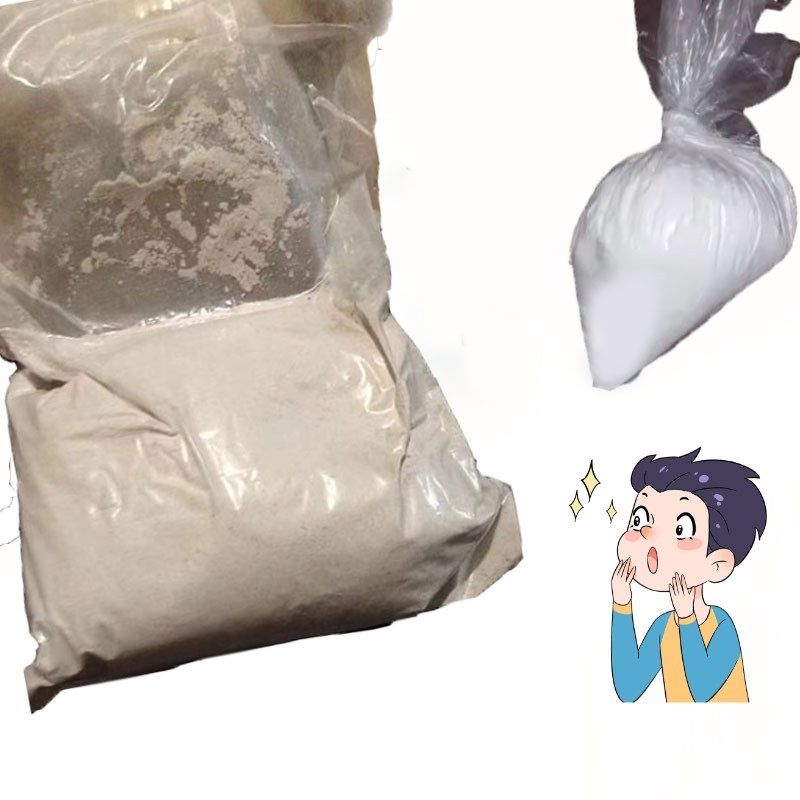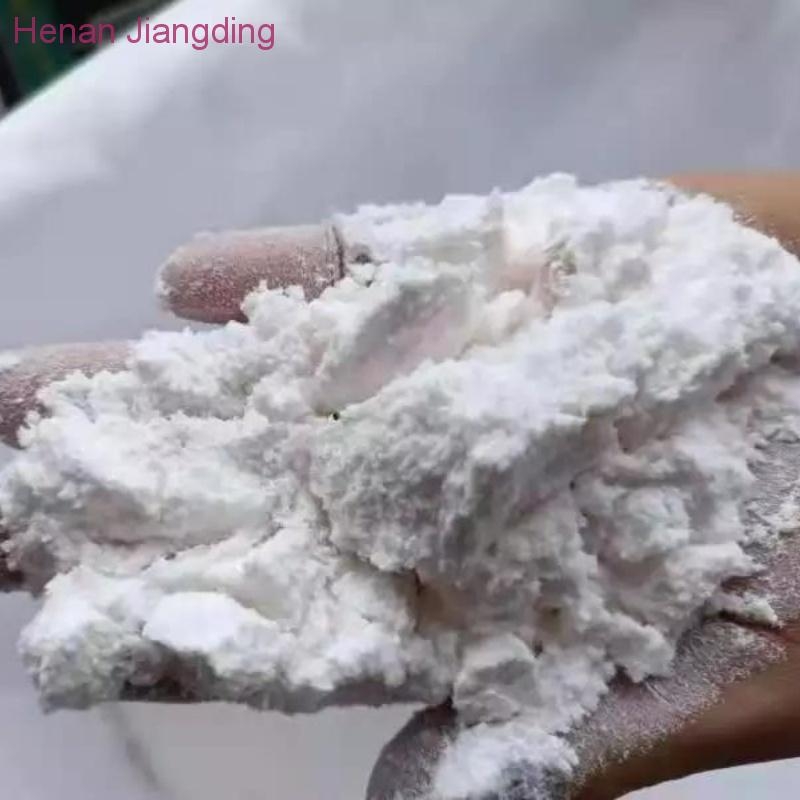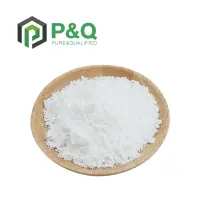The first new anti epileptic drug from cannabinoids! Epidiolex applied for new indications in the United States for the treatment of tuberous sclerosis (TSC) - related epilepsy
-
Last Update: 2020-02-24
-
Source: Internet
-
Author: User
Search more information of high quality chemicals, good prices and reliable suppliers, visit
www.echemi.com
February 24, 2020 / BIOON / -- GW Pharma, a British pharmaceutical company, is a global leader in the field of cannabinoid prescription medicine science, development and commercialization Recently, the company and its U.S subsidiary Greenwich Biosciences announced that they have submitted a supplementary new drug application (SNDA) to the U.S Food and Drug Administration (FDA) for epidilex (cannabidiol, cannabis glycol, CBD) oral liquid preparation The SNDA seeks to expand epidiolex's label to include the treatment of epilepsy caused by tuberous sclerosis (TSC) Epidiolex is currently approved in the United States for the treatment of seizures associated with Lennox Gastaut syndrome (LGS) and Dravet syndrome Epidiolex has been given the name of orphan drug by FDA to treat TSC TSC is a rare, serious, childhood genetic disease Epilepsy is the most common neurological feature of TSC Up to two-thirds of TSC patients will experience drug-induced intractable seizures There is a great demand for new treatment methods to solve the epilepsy related to TSC Data from phase III clinical studies showed that epidiolex significantly reduced refractory seizures (both focal and systemic) associated with TSC and improved the overall condition of patients compared to placebo If approved, epidiolex will provide an important treatment option for the TSC patient population The SNDA was based on the results of a randomized, double-blind, placebo-controlled phase III clinical study In this study, 224 TSC patients (aged 1-65 years) were randomly assigned to receive epidiolex 25mg / kg / day (n = 75), epidiolex 50mg / kg / day (n = 73), placebo (n = 76) for 16 weeks (titration period of 4 weeks, maintenance period of 12 weeks) The primary end point was the percentage change in the frequency of TSC related focal and systemic seizures compared to placebo during treatment The key secondary end points included: the proportion of patients with ≥ 50% reduction in seizures, the proportion of patients with ≥ 50% reduction in total seizure frequency (including focal sensation and epileptic spasm), and the overall impression of changes in the overall condition of subjects / caregivers (s / CGIC) The results showed that the main end point of the study was reached Compared with the placebo group, the frequency of TSC related seizures in the epidiolex treatment group was significantly reduced: the relative baseline of the epidiolex 25 mg / kg / day treatment group and the 50 mg / kg / day treatment group was reduced by 49% and 48%, respectively, and that of the placebo group was reduced by 29% (P = 0.0009, P = 0.00118) The results of all critical secondary endpoints support the impact on primary endpoints Specifically: (2) compared with the placebo group, Epidiolex treatment group has a higher proportion of patients with epilepsy reduced by 50% or more (36% in the 25mg/kg/ day group, 40% in the 50mg/kg/ day group, 22% in the placebo group, p=0.0692 and p=0.0245) (2) Compared with the placebo group, 48% of the patients in the two doses of epidilex treatment group experienced a greater reduction in the total attack frequency (including focal sensation and epileptic spasm), compared with 27% in the placebo group (P = 0.0013 and P = 0.0018) (3) According to the results of S / CGIC questionnaire, the improvement rates of epidilex 25mg / kg / day group and epidilex 50mg / kg / day group were 69%, 62% and 39% respectively (P = 0.0074 and P = 0.0580) (4) Additional analysis showed that patients treated with epidilex experienced a greater reduction in complex focal seizures than those treated with placebo (52% and 50% respectively in the 25 mg / kg / day and 50 mg / kg / day treatment groups, 32% in the placebo group, P = 0.0076 and P = 0.0116) The safety profile observed in this study is consistent with the results of previous studies, and no new safety risks are found The incidence of adverse events (AE) was 93% in the 25mg / kg / day group, 100% in the 50mg / kg / day group and 95% in the placebo group Both doses have acceptable safety, and adverse events of 25 mg / kg / day are less than 50 mg / kg / day The most common adverse reactions were diarrhea, loss of appetite and drowsiness Tuberous sclerosis (TSC) is a rare genetic disease, affecting about 50000 people in the United States and nearly 1 million people in the world Globally, at least two TSC babies are born every day, with an estimated one in 6000 births The main cause of hereditary epilepsy is the growth of benign tumors in important organs of the body, including brain, skin, heart, eyes, kidney and lung TSC usually occurs in the first year of life, manifested as focal epilepsy or infantile spasm, and is associated with an increased risk of autism and intellectual disability The severity of the condition can vary widely In some children, the disease is very mild, while others may have life-threatening complications About 85% of TSC patients have epilepsy, which may develop into drug refractory More than 60% of TSC patients can't control epilepsy by standard treatment, such as antiepileptic drugs, epileptic surgery, ketogenic diet or vagus nerve stimulation, compared with 30-40% of epilepsy patients without TSC are resistant Epidyolex (European trade name: epidyolex) is an oral, high-purity CBD extract liquid preparation CBD is a non spiritual component from cannabis plant, which has a variety of pharmacological effects on the nervous system A large number of studies have shown that CBD has obvious antiepileptic and anticonvulsant activities, with fewer side effects than existing antiepileptic drugs In the United States, epidilex oral liquid preparation was approved by FDA in June 2018 for use in patients aged 2 and over to assist in the treatment of epilepsy related to Lennox Gastaut syndrome (LGS) and Dravet syndrome (DS) In the EU, epidyolex was approved for the same indications in June 2019 LGS and DS are two rare, severe and childhood epilepsy types, which are also the most difficult to treat In the United States, the FDA has previously granted epidilex orphan status for the treatment of LGS and DS In addition, FDA has granted epidiolex a fast track status in the treatment of DS In Europe, epidyolex has also been granted orphan status by EMA to treat LGS and DS Epidilex / epidyolex is the first plant-derived cannabinoid drug approved by the United States and Europe for the treatment of epilepsy, and also the first new antiepileptic drug (AED) The industry is very optimistic about the commercial prospect of the drug The company had previously forecast sales of $1 billion 200 million in 2022 At present, GW pharmaceutical company is developing epidilex / epidyolex for the treatment of other rare diseases including TSC and Rett syndrome GW has launched sativex, the world's first herbal cannabinoid prescription drug, which has been approved in many countries outside the United States for the treatment of multiple sclerosis spasm; the company is advancing a later stage project of sativex to seek FDA approval The company has a range of cannabinoid candidates in its pipeline, including compounds for epilepsy, autism, glioblastoma and schizophrenia (bio Com) original source: pharmaceuticals and Greenwich Biosciences submit supplementary new drug app app lication to U.S FDA for epidiolex? (cannabiol) for the treatment of tuborous Sciences Complex
This article is an English version of an article which is originally in the Chinese language on echemi.com and is provided for information purposes only.
This website makes no representation or warranty of any kind, either expressed or implied, as to the accuracy, completeness ownership or reliability of
the article or any translations thereof. If you have any concerns or complaints relating to the article, please send an email, providing a detailed
description of the concern or complaint, to
service@echemi.com. A staff member will contact you within 5 working days. Once verified, infringing content
will be removed immediately.







